Group leader
PD Dr. Zohreh Hosseinzadeh
Lab leader
Dr. Yagmur Demircan-Yalcin
Senior Postdoc researcher
Dr. Nur Akkayap
PhD student
Yao Yao
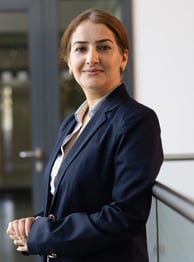

Alumni members
Postdoc: Dr. Basma Sukkar
Dr. Hamed Shabani
Shima Zonouri
Aylin Moaydi
PD Dr. Jin Yan- recent
Dr. Jamshed Warsi-recent
Dr. Musab Ahmed
Dr. Myriam
Pepe
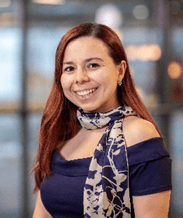

Project Highlights: Her primary project, NeuFRO (ERC Starting Grant awarded to Zohreh Hosseinzadeh), defined as the generation of a functional human retinal organoid with naturalistic wiring and firing. A conceptual roadmap will be produced to better understand how electrical activity of retina gives rise to spontaneous waves and naturalistic action potentials during development, leading a mature neuronal circuit. Next, these patterns will be introduced in human retinal organoids to promote normal retinal maturation. NeuFRO aims to yield an advanced, functionally mature retinal organoid model to serve as the new standard in disease modeling and therapy development. In addition to her main project, she contributes to several electrophysiology-focused initiatives.
Biography: Yagmur, born in 1988, earned her BSc, MSc, and PhD in Electrical and Electronics Engineering, along with a Minor in Biology, from Middle East Technical University, Turkey. Her PhD focused on developing a lab-on-a-chip system for chemotherapy guidance in leukemia. creating tools for early diagnosis and prognosis of fatal diseases. In her postdoctoral studies in Neuro-Nanoscale Engineering at Eindhoven University of Technology, Netherlands, designing innovative micro physiological sensors, combining electrical and mechanical modalities, and advancing 3D MEA platforms for brain-on-a-chip applications. At InnoFluidics B.V., Netherlands, she contributed to a state-of-the-art spectroscopy for analyzing the biomarkers. Currently, as Electrophysiology Lab Leader in Hosseinzadeh’s group, she focuses on organoid research and electrophysiological measurements in the study of retinal diseases. She is a proactive and detail-oriented listener, a cheerful problem-solver, and a data-driven decision maker who is keen to learn new technologies and approaches pursuing her curiosity.
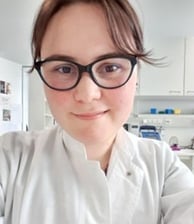

Project Highlights: Dr. Akkaya is working on generating human induced pluripotent stem cells-derived retinal components. She is mainly focusing on retinal microvasculature structures to get understand the pathophysiological mechanisms of Diabetic retinopathy. She aims to examine the possible neuroprotective effects of PARP inhibitors in diabetic retinopathy modeled retinal structures. She is also interested in nano-based drugs for this purpose.
Biography: Dr. Akkaya was born in 1990 in Izmir, Türkiye. She graduated from Ankara University Faculty of Science Department of Biology in 2012. She received her MSc and PhD in Faculty of Medicine Histology and Embryology Department in Gazi University/Ankara-Türkiye, respectively in 2015 and 2022. She received her PhD with her thesis titled Repurposing Poly-ADP-ribose polymerase (PARP) inhibitors for possible neuroprotective effects in hereditary retinal degenerations, which she completed her experimental studies in Tübingen University Institute for Ophthalmic Research/Germany during one year. She was a research assistant between 2014 and 2023 in Gazi University and Balikesir University Department of Histology and Embryology. She is also been a lecturer at Balikesir University since September 2023. She is basically histologist, she worked on generating patient-derived and animal-derived intestinal organoids at Curileum Biotechnology Company in London. She is also interested in cell and organotypic culture systems. She is passionate about retinal studies and is absolutely still a student. She received Tübitak-2219 Postdoctoral Fellowship in September 2023 to study on Diabetic retinopathy in RadboudUMC Ophthalmology Department in Zohreh Hosseinzadeh`s group.
Biograpy: Sarah de Jong, PhD received her BSc in general Biology from Heinrich-Heine University Düsseldorf (DE) in 2014, and her MSc in Biomedicine from Lund University (SE) in 2017. During her Master internship she studied the role of the complement system in age-related macular degeneration, and fascinated by the topic she decided to continue this work as a PhD candidate in the Radboudumc in Nijmegen (NL) from 2017-2021. In 2022 she worked as a Postdoc in the University hospital Tübingen (DE), and since late 2023 as a Postdoc in the Rabdoudumc (NL). From 2016 on, with the begin of her Master thesis, Sarah looked into the role of the complement system in age-related macular degeneration, working at the intersection of Genetics, Biochemistry and Cell Biology. She performed extensive functional tests of protein carrying care alterations identified in AMD patients (functional genomics), studied protein function HTRA1 (one of the major risk loci in age-related macular degeneration) and utilized iPSCs to generate ocular cell types like retinal organoids and RPE.
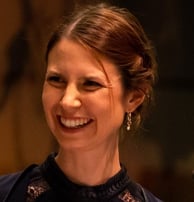

Senior Postdoc researcher
Dr. Sarah de Jong
Project Highlights: Sarah is currently focusing on two projects: In one she is studying the effect of certain genetic risk loci in RPE using a broad multi-omics approach. In the other one she is looking into choroidal cells and how they respond to aberrant (systemic) complement activation. Both projects aim at better understanding molecular processes in AMD.
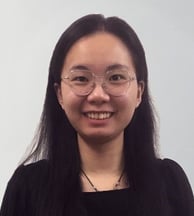

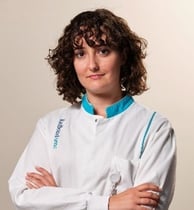

Lab Manager
Louet Koolen


PhD student
Pragati Gupta
PhD student
Monica Vargas San Gil
PhD student
Monica Vargas San Gil
PhD student
Kallirrio Kyriazi
Pre-doc student
Yoanna Petrova
Pre-doc student
Ayse Sozerl
Guest student
Koln University
Anayibe Sanchez Romero


Contacts
zohreh.hosseinazdeh@radboudumc.nl
Socials
https://orcid.org/0000-0003-3407-7754
